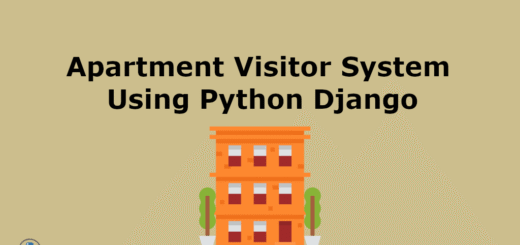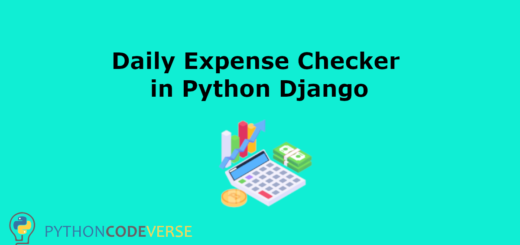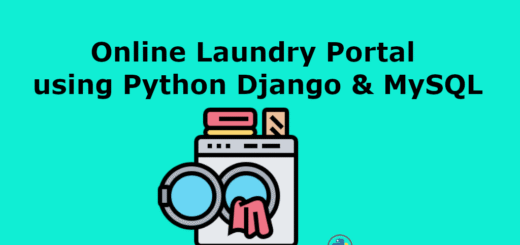Shopping Portal using Python Django & MySQL
In the rapidly evolving digital age, online shopping has transformed the traditional retail landscape, providing consumers with unprecedented convenience and access to a wide variety of products. The Online Shopping Portal using Python Dajngo is a web-based system that allows users to browse, compare, and purchase products or services directly from the comfort of their homes.
The primary objective of this system is to simplify the shopping experience for users while providing a platform for businesses to expand their reach. It eliminates the geographical and time limitations associated with conventional shopping, offering a 24/7 shopping experience. By leveraging the power of the internet, customers can shop at any time, from any place, without needing to visit physical stores. Shopping Portal using Python Django | Online Shopping Portal Project in Python
The portal is designed to cater to two major user groups:
- Consumers, who are looking for a wide range of products and services with easy access to product details, reviews, and secure payment options.
- Sellers, who can display their products, manage inventories, and track customer orders in real-time.
| Language Used | Python |
|---|---|
| Framework Used | Django |
| Database | MySQL |
| User Interface Design | HTML, AJAX,JQUERY,JAVASCRIPT |
| Web Browser | Mozilla, Google Chrome, IE8, OPERA |
| IDE | PyCharm |
Shopping Portal using Python Django & MySQL Modules
MODULES: This project contains two modules, which are
- Admin
- User
MODULES DESCRIPTION:
Admin Modules
This module provides administrator-related functionalities. The administrator manages the entire application.
Dashboard: In this section, admin can briefly view the total brands, total category, total subcategory , total products, total registered users, total new orders , total in-process orders , total dispatched orders , total delivered, total new review, total approved review and total unapproved review.
Brand: In this section, admin can manage brand of products(add/update/delete).
Category: In this section, admin can manage category of products(add/update/delete).
Subcategory: In this section, admin can manage subcategory of products (add/update/delete).
Products: In this section, admin can manage products (add/update/delete).
Reviews: In this section, admin can view the reviews and have to right approved and disapproved the reviews.
Orders: In this section, admin can view the order details and they have also the right to change order status according to current status.
Search Order: In this section, admin can search particular order with the help of the order number.
Reports: In this section admin can view order details and sales reports according to dates.
Registered Users: In this section, the admin can view registered users.
Admin can also update his profile, change the password and recover the password.
User Module
1.Shop: In this section, users can view which products is available on the website
2.My Accounts: In this section, users can his/her password, view and update his/her profile and log out from accounts.
3.My orders: In this section, users can view order history after login.
4.Cart: In this section, the user can add the products which he/she want to order.
5.Wishlist: In this section, the user can add products to the Wishlist.
6.The user has also a facility to download his/her invoice and cancel orders if he/she wants to cancel.
Brief Information about the Homepage
On this page, guest users (users who are not registered) can view the products, search for products according to name and brand name. Guest users can also sign up, and the registered users can sign in. User can also track their order without login.
Shopping Portal using Python Django & MySQL ScreenShots
Home Page
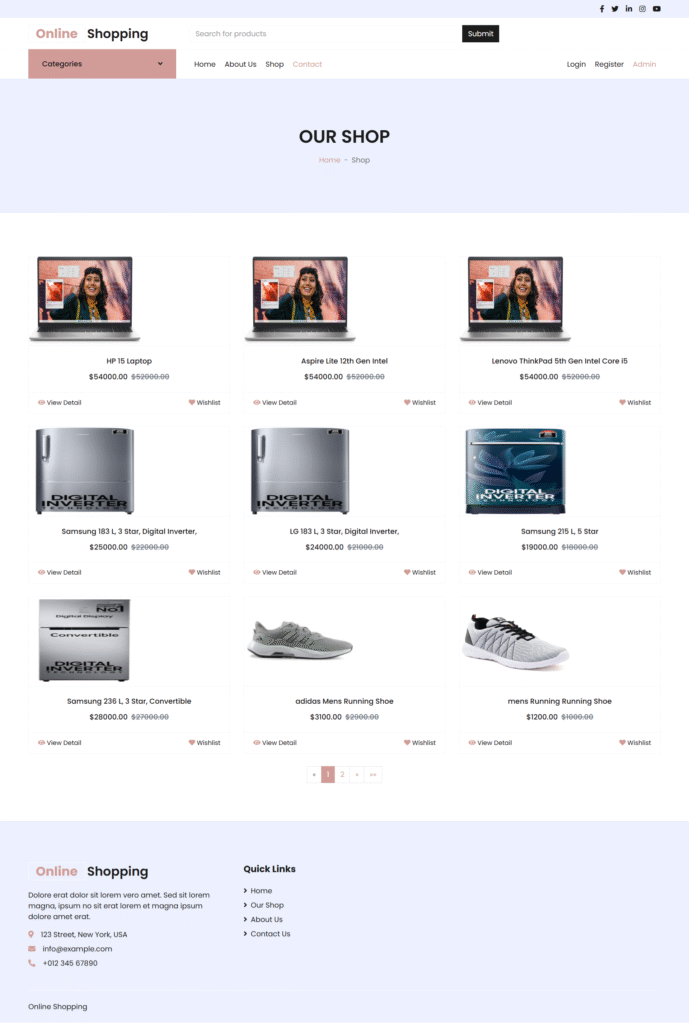
User orders
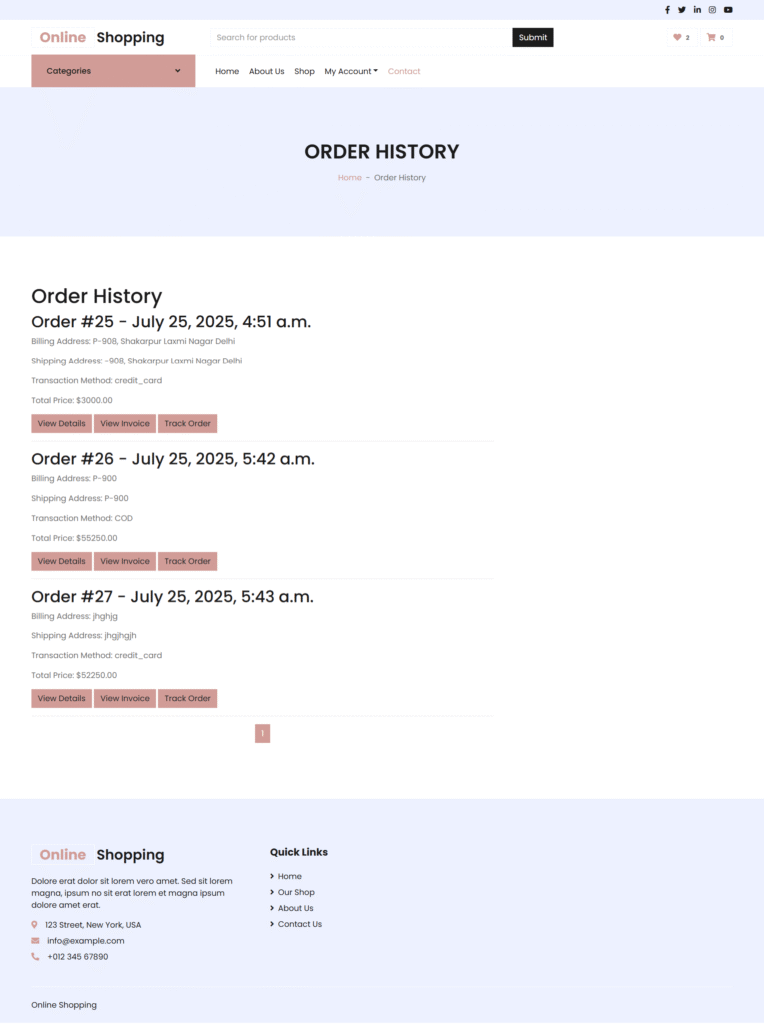
User Wish List

Admin Dashboard
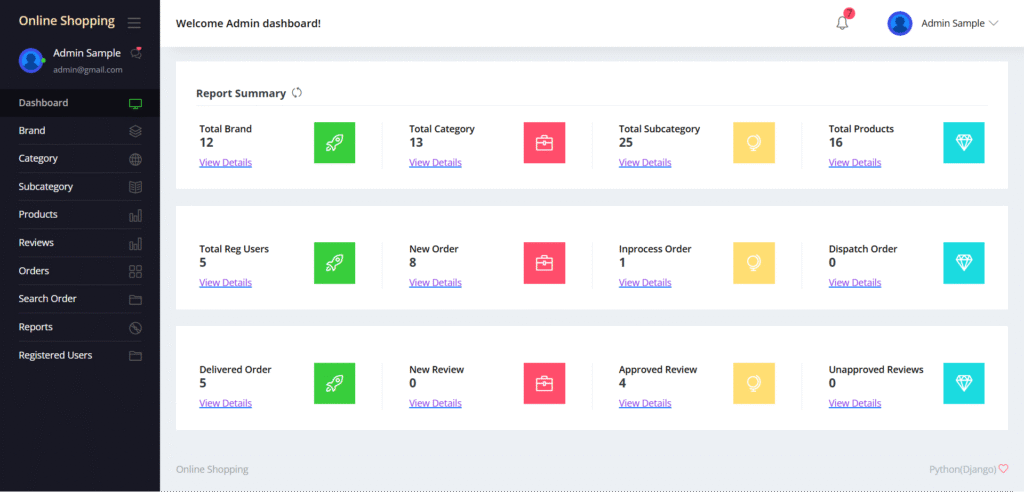
Add products
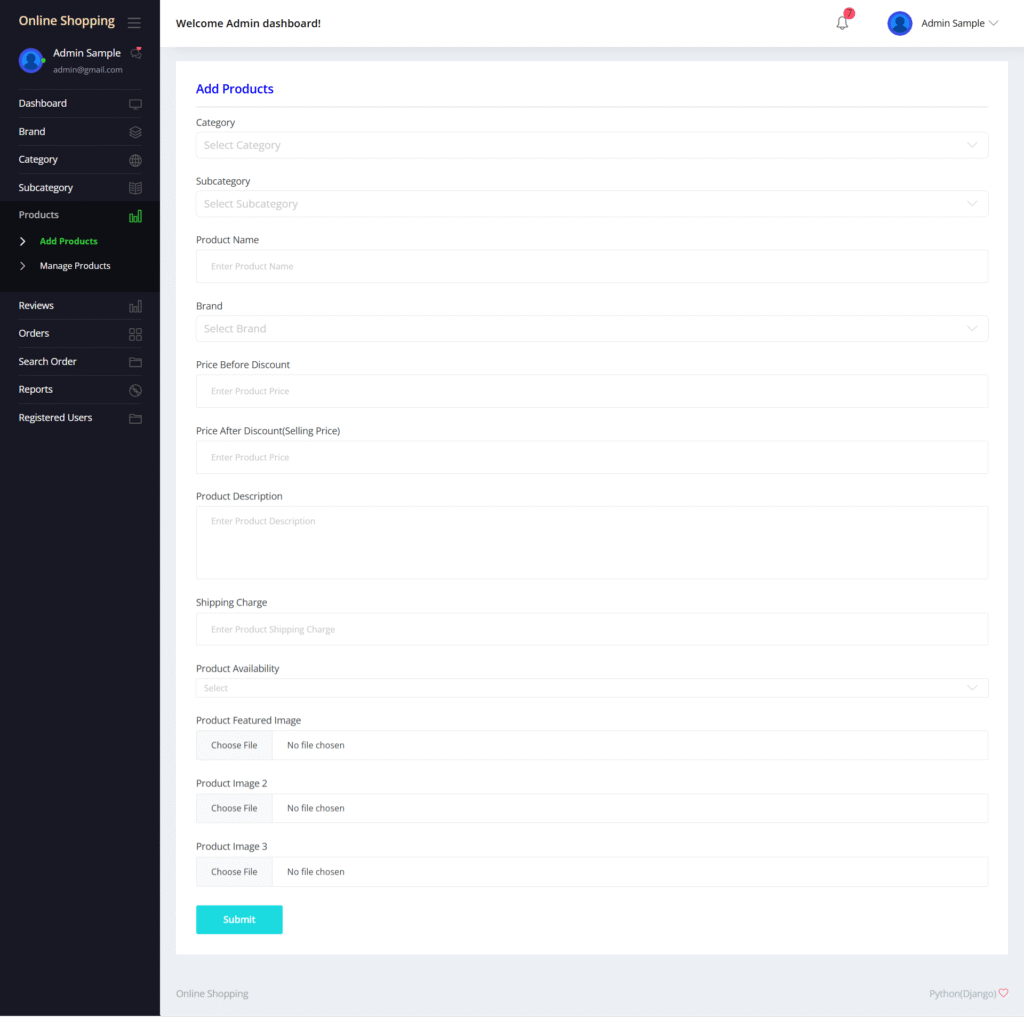
orders
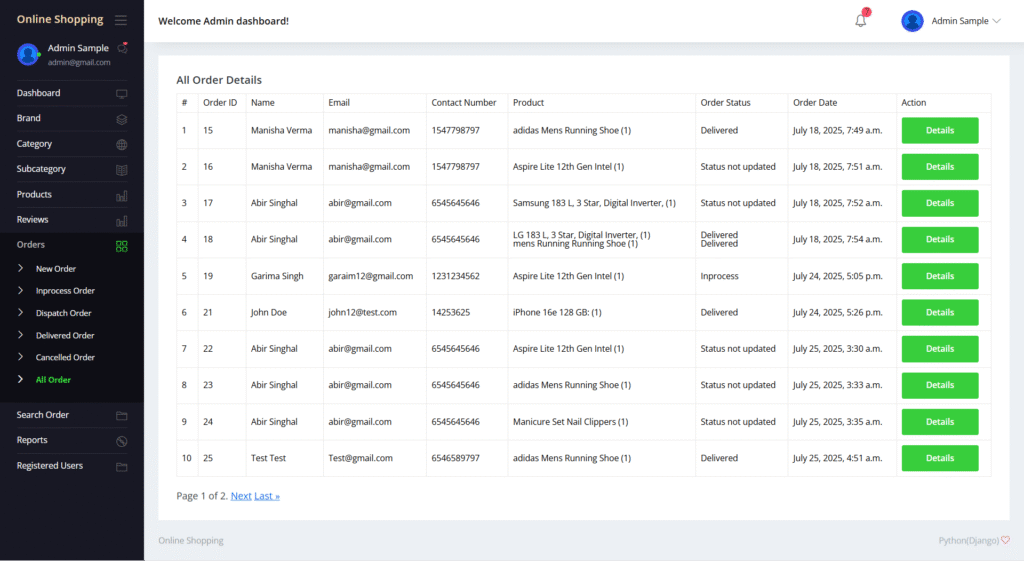
Order Details

How to run the Online Shopping System Project Django, Python
1. Download the zip file
2. Extract the file, copy eccomshopping folder, and paste it on the desktop
3. Open MySQL create a database smspythondb then import the SQL File available in the SQL File Folder (For MySQL we used the XAMPP server)
4. Open PyCharm and click on the terminal
5. Navigate the project folder using the cd command
cd project_path
For ex: cd C:\Users\your_computer_name\OneDrive\Desktop\eccomshopping\
OR
Import in pycharm
6. Now Navigate to the shoppingmgmtsys folder
cd shoppingmgmtsys
7. Run the Project using the following command
python manage.py runserver
Now click the URL http://127.0.0.1:8000, and the Project will run
Login Details
*************admin************
Username: admin
Password: Test@123
*************User************
Username: john12
Password: Test@123 or Register a new user member.
Shopping Portal using Python Django & MySQL Demo
Shopping Portal using Python Django & MySQL Download Link

